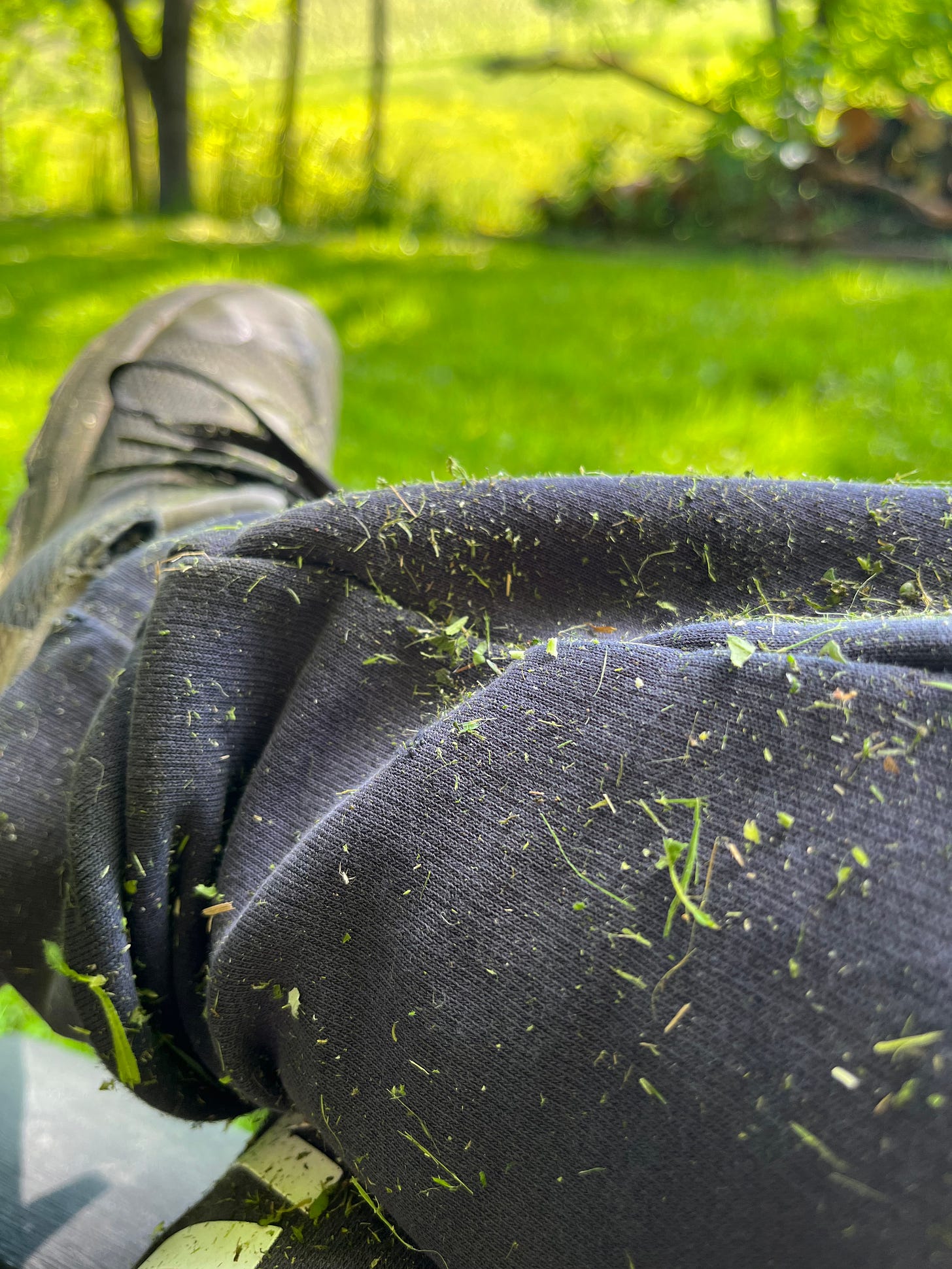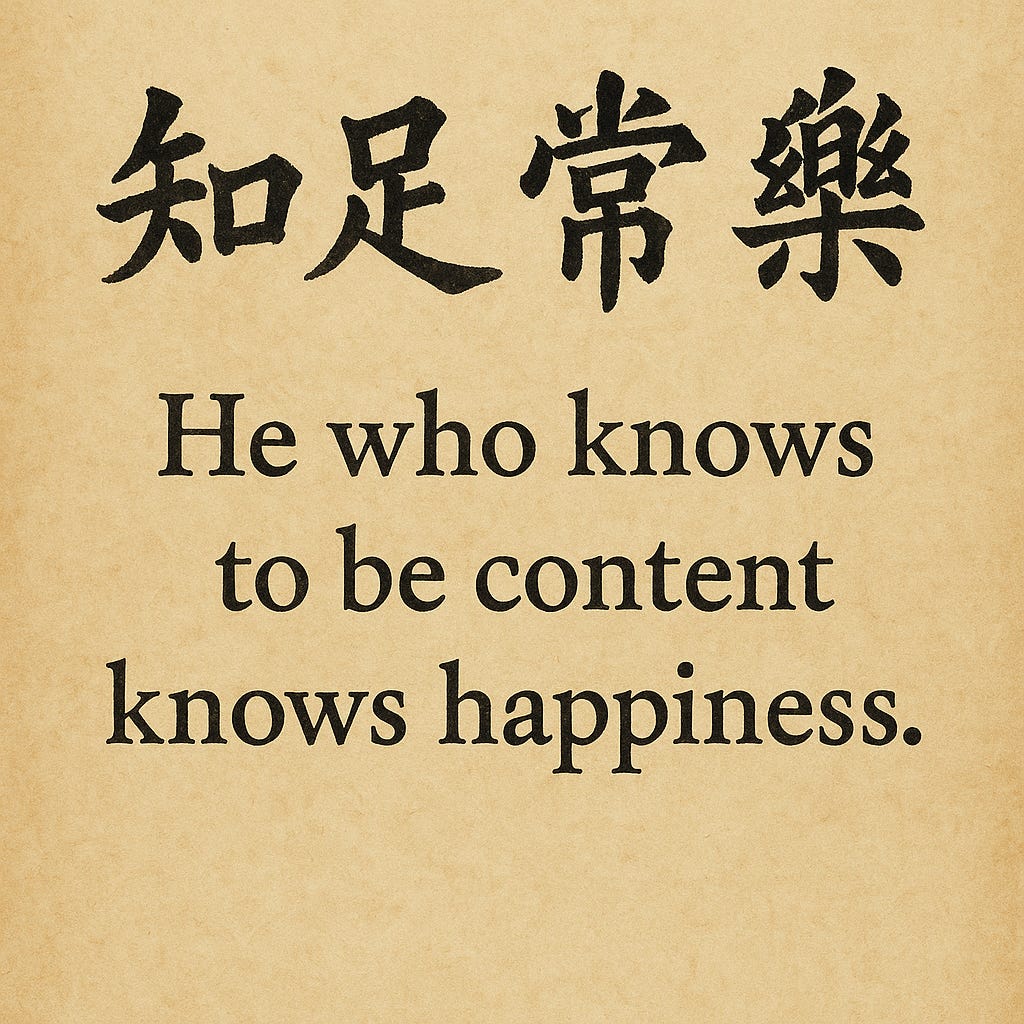As you know, I talk and write about fearlessness. To me, it is both a personal trait and a human journey — an adventure of self-realization, driven by one simple wish: to find happiness.
Not long ago, I met
. She writes and talks about happiness, and we agreed to connect our interests and writings to generate content together, a collaboration I’m genuinely excited about.I want to begin by sharing my definition of happiness — one I’ve borrowed from my readings on nonduality:
“Happiness is what is revealed when we drop our fears, anxieties, and resistance to the circumstances as they are today.”
In other words, our fears, anxieties, and resistance veil our true self — which is happiness.
Let me expand on that idea just a bit more. I also believe that happiness, at its core, is what we call love and peace. All of these are our natural state.
Jane recently wrote a beautiful article titled:
Where she shares traditional Chinese wisdom:
知足常樂 – He who knows to be content knows happiness.
How does that saying connect with my view of happiness?
Here’s my interpretation: Being content means being satisfied — even grateful. If we learn to be satisfied with what we have, we begin to see happiness. Why?
Because contentment requires presence. It calls us back from fear and anxiety. It invites us to trust the process of life and reminds us that we can only act with what is available to us, here and now.

Jane makes a great point that brings the theory into practice:
“To be fair, desiring what we don't have in and of itself might not necessarily be a bad thing.”
Of course. There’s no reason not to work for better conditions, opportunities, or comfort. The key is not to get hooked on expected results or to identify with them.
I can’t help but think that "He who knows to be content knows happiness" implies a kind of knowing in the present. A clarity that returns each time we remember: we can be content now. If we forget, anxiety creeps in and we’re back on the familiar roller coaster.
Jane also highlights how most of us are constantly seeking happiness, and that this endless search makes us vulnerable. Consumerism thrives on that vulnerability. We convince ourselves that we need more, do more, become more — before we can feel happy.
What’s becoming clearer to me through this exchange with Jane’s work is this: Gratitude, contentment, and a grounded sense of satisfaction are gateways to happiness. They don’t create happiness — they uncover it. They help us recognize when fear and desire are blurring our experience of what’s already here.
In the end, happiness might not be something we chase or build.
It may simply be what’s left when we stop running — and let life, as it is, come into focus.
Naturally, I wanted to know what Jane thought of all this, so I shared the draft and asked for her reflections. Here’s what she wrote:
“It is wonderful to have Jose generously sharing with this community his insights and perspective on happiness as it is related to his expertise area, fear and fearlessness!
I have learneded quite a few things from this already and hope readers here too.
At the end, the point that 'happiness might not be something we chase or build' in this article may seem in contradiction with my conviction — and the reason for my Substack — that happiness can be built. But in essence, the two views are both constructive approaches toward happiness, from two different angles.
Or they may even be seen as aligned, moving in the same direction: Combining this with the ancient wisdom shared in the article, we may first need to fend off the external noise (money, status, social comparison, etc.), then remove the internal noise or veil, as José points out (fear, anxiety, resistance, etc.).
From there, we can access our inner true self — the source of real happiness. And once we reach that place, we have the foundation to build and enhance happiness authentically, using the scientific knowledge and research-based skills I advocate my Substack.”
What do you think, dear Substacker? How do you understand happiness?
Here are some related articles by Jane:
Something from me
I hope you enjoyed this collaborative publication!
With love,
Jane and Jose.
And don’t forget to follow Jane and subscribe to her publications:











